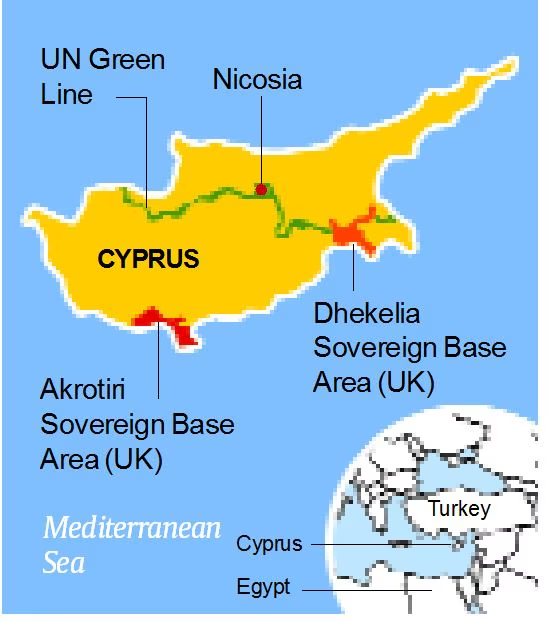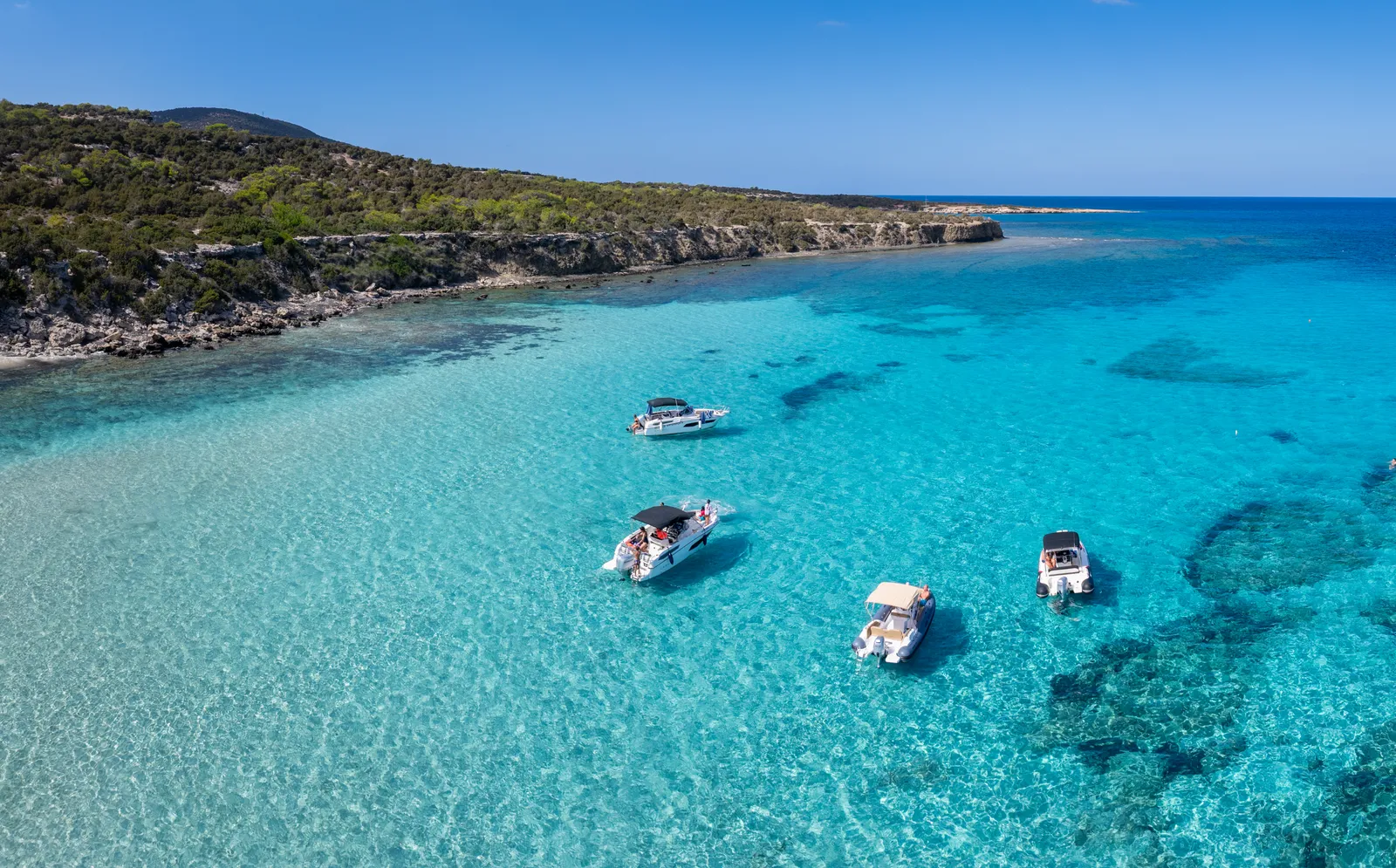Cyprus, a small but historically important island nation, is located in the blue waters of the Mediterranean Sea. Located at the crossroads of Europe, Asia and Africa, this island has been in international attention for centuries not only for its natural beauty, but also for its political complexity, cultural diversity and strategic location
Geographical identity

Cyprus is the third largest island in the Mediterranean Sea, located between Greece and Turkey. It is bordered by Turkey to the north, Egypt to the south, and Syria and Lebanon to the east. The island has a total area of approximately 9,251 square kilometers. The capital and largest city is Nicosia, which is located in the center of the island and is the only divided capital city in the world.
A look back at history
Cyprus has a history that dates back about 10,000 years. In ancient times, it was under the rule of the Greek, Phoenician, Roman and Byzantine empires. It was used as an important trading center from 1500 BC.
In 1191, Richard the Lionheart captured the island, and it later came under the Lusignan dynasty and later the Venetians. In 1571, the Ottomans conquered Cyprus and ruled for almost 300 years. In 1878, it passed to the British and gained independence in 1960, although two British military bases still remain on the island—Akrotiri and Dhekelia.
Political division
The most controversial aspect of Cyprus is its political division. The Turkish military intervention in 1974 effectively divided the island into two parts. The northern part is the “Turkish Republic of Northern Cyprus”, which is recognized only by Turkey. The southern part is the internationally recognized Republic of Cyprus, which is a member of the European Union.
The city of Nicosia is also divided, with one part controlled by Greece and the other by Turkey. In the middle of the city is a “buffer zone” controlled by the United Nations, known as the “Green Line”.
Culture and Society
Cyprus is a country of cultural diversity. It is home to two major ethnic groups, Greek and Turkish. Greek Cypriots live in the southern part of the island and Turkish Cypriots in the northern part. Although their language, religion, dress, food and festivals are different, there are some traditions and cultural similarities, especially in the areas of music and dance.
Greeks are predominantly Orthodox Christians and Turks are Muslim. Eid, Christmas, Easter, Bayram—all celebrated in different parts of the island. The island’s folk music, handicrafts, and traditional dishes such as halloumi cheese, kebabs and meze—all attract tourists.
Economy
The economy of Cyprus is mainly dependent on the service sector. Tourism, banking, shipping and real estate are the main drivers of the economy. After Cyprus became a member of the European Union, its tax advantages and business environment have attracted many foreign investors.
The country adopted the euro in 2008. However, in 2012–13, Cyprus suffered an economic collapse due to a banking crisis. The economy later recovered with the help of the European Central Bank and the IMF.
Tourism plays a major role in the country’s economy. Combining sun, sea and history, Cyprus attracts millions of tourists every year. Popular tourist destinations include Limassol, Paphos, Larnaca, Ayia Napa and the historic towns of Kourion and Salamis.
International relations
Cyprus occupies an important position in international diplomacy, particularly due to its strategic location. It is a member of the European Union but not NATO. However, it participates in the European Security and Defense Policy.
Cyprus’s relations with Turkey remain complicated. The Cypriot government has been demanding the withdrawal of Turkish troops and the full unification of the island. Despite repeated attempts by the United Nations to broker a settlement, a permanent solution has not yet been reached.
Education and lifestyle
Cyprus has a well-developed education and health sector. There are many international universities here, such as the University of Cyprus, Cyprus International University and Near East University. Many Bangladeshi, Indian and Pakistani students come here for higher education.
The standard of living is relatively good. Law and order is in control, environmental pollution is low, and the weather is mild—making it a popular place to live.
Current context and future prospects
Cyprus is currently trying to modernize its economy and technology sectors. At the same time, investment in climate change and renewable energy has increased.
Politically, the island is still divided, but the door to dialogue is open. Many are optimistic that one day a compromise will be possible between Greek and Turkish Cypriots, and the island will regain full unity.
Conclusion
Cyprus is not just an island, it is a symbol—a symbol of cultural coexistence, political complexity and historical depth. Where a wonderful combination of thousands of years of history, religion, culture and modern life occurs.
This small island shows how small a country can be, yet how big in importance it can be. The story of Cyprus is one of struggle, identity, and hope—a story that is still being written in the pages of history.



